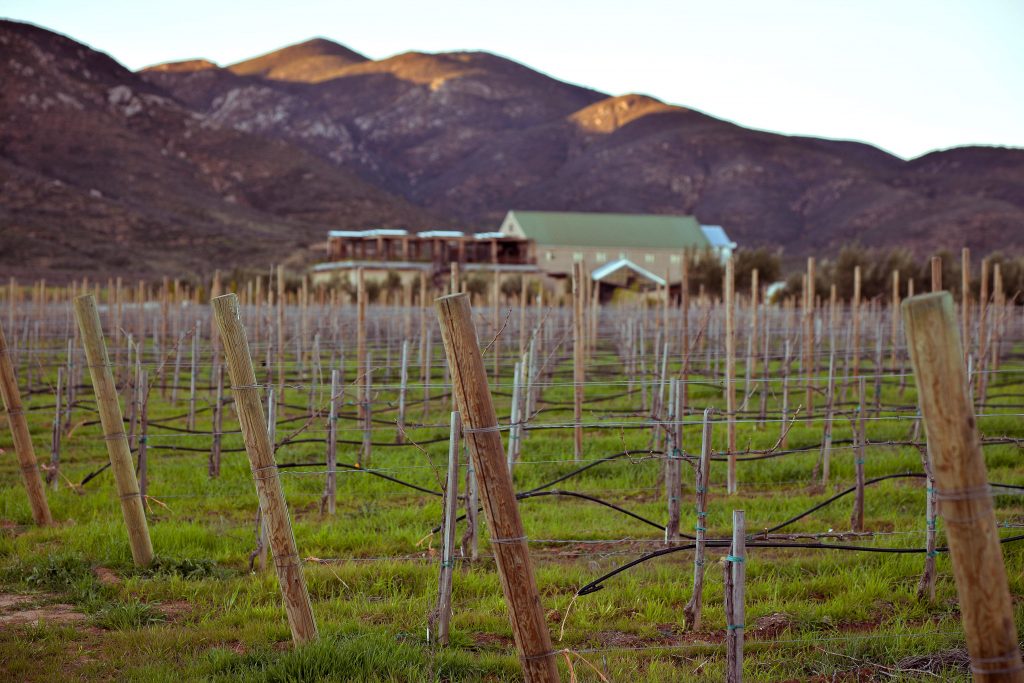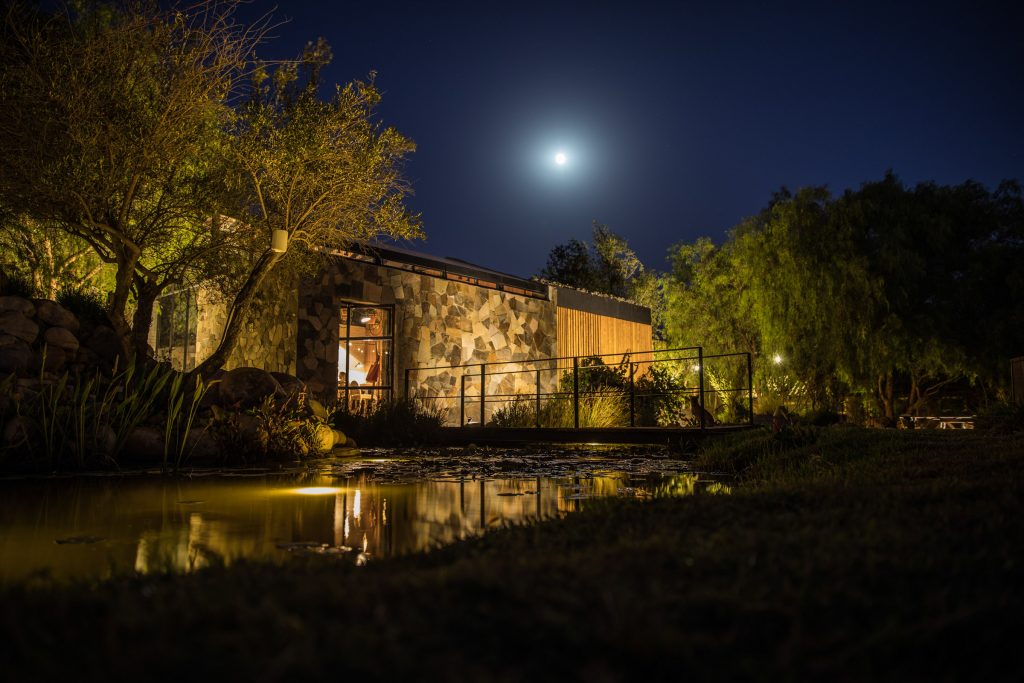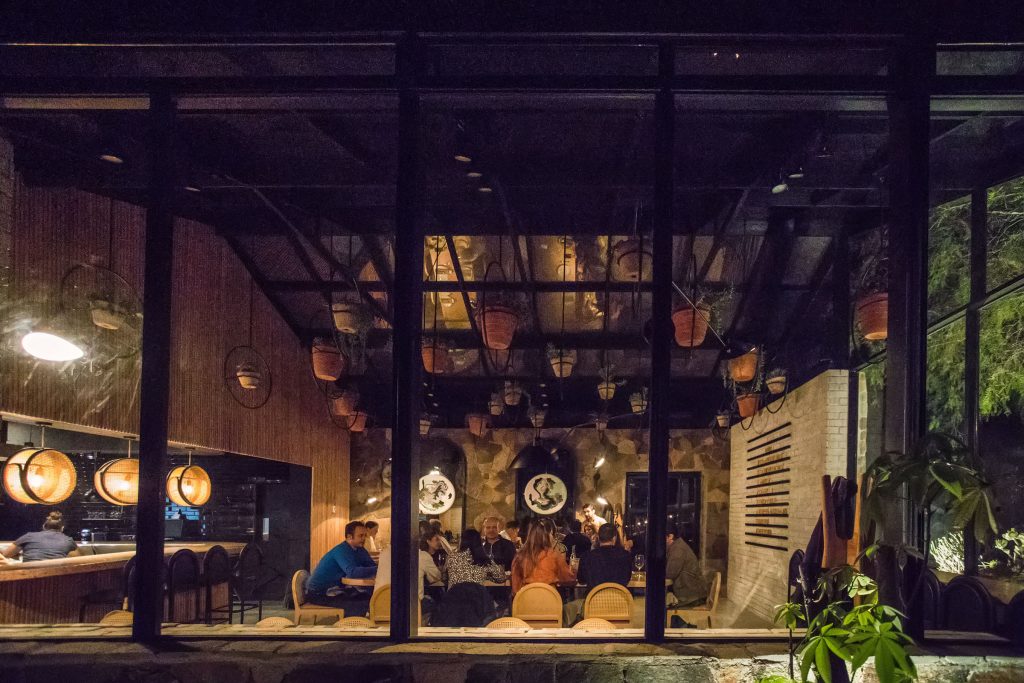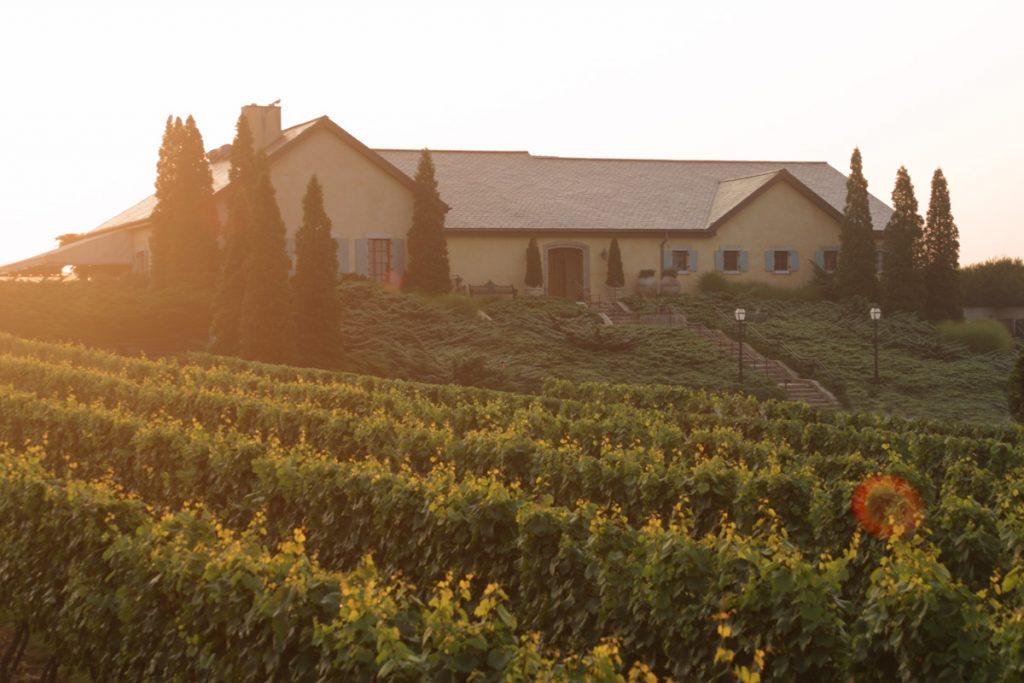Visiting Lomita + Finca la Carrodilla Wineries in Valle de Guadalupe, Mexico
Celebrating Baja culture through delightful wines and fine dining

About 20 miles northeast of Ensenada, in the middle of the Valle de Guadalupe wine region, the Finca La Carrodilla winery makes Árbol, the region’s first fully organic wine (a Syrah). In the vineyard, sheep rollick their way across the rows of vines, clearing the land and fertilizing the soil. An apparatus that rolls the adorable flock, fondly nicknamed the “lamb rover,” provides a glimpse into the biodynamic processes at play.

The sun occupies the sky above. The breeze blows. It’s winter in Baja. This weather helps the winemakers grow the fragrant grapes they aim to harvest in the fall. Winery owner Fernando Pérez Castro looks out across the vineyard. From the grapevines they are making the first biodynamic wine in Baja, Mexico. “When we embarked on the idea of having a certified organic property in Valle, there were a lot of naysayers,” he tells us. “So when we walk around and see our healthy organic vines we feel excited for the things to come.”
It’s not only about making great wines, it’s about having a sense of wellbeing
Pérez Castro opened Lomita winery in 2009 and Finca la Carrodilla in 2011. The core of his mission was—and remains—to honor the land and celebrate the beauty of Baja’s winemaking tradition. “I fell in love with a previous experience that I had with a biodynamic farm in Napa. For me, it just clicked. It almost instantly made sense in a lot of ways, but most importantly in a philosophical way,” he explains. “So in that way, it was vital that not only me, but also my family and the people that work for us could relate to agriculture and nature in a more holistic and—I would say—profound way. It’s not only about making great wines, it’s about having a sense of wellbeing. It’s about being respectful about the organisms that surround us and is ultimately setting a firm ethical basis for the next generations to come.”

As Baja’s winemaking region becomes an increasingly sought-after place to establish roots and, for wine enthusiasts, visit, Pérez Castro has also found time to champion the entire winemaking community in the area, with the goal of preserving the heritage of the valley. “I’m involved in a lot of ventures. I was the president of Provino Baja California, Baja’s wine chamber, for the last two years. Together, we pushed really hard to make the first set of regulations for tourism and development for the region an official rule of law,” he tells us. They have managed to protect more than 80% of the 40,000 acres of Valle de Guadalupe for conservation and agricultural purposes.
“I’m also part of the Por Un Valle de Verdad movement which includes chefs, agronomists, winemakers and entrepreneurs trying to create an agenda to promote a sustainable growth for Valle de Guadalupe,” he continues. “It’s not an easy task because the Valle has become a treasure for real estate and big impact commercial projects. But we are willing to do whatever is necessary to protect the beautiful and unique landscape of our region.”

At both Lomita and Finca la Carodilla there are free-flowing architectural facilities that employ vertical winemaking practices to maximize sustainability. The process begins on the top floor of a three-story building where grapes are sorted and pressed, then loaded into the fermenters below. Stainless steel tanks from Argentina and Spain fill the second floor. Barrels line the bottom floor’s wine caves, providing the optimal environment for aging. This setting gives the winemakers an ecologically minded space for wine production. Winemaker Gustavo González has over 20 years of winemaking experience in the US and, in 2015, returned to his parents’ country of origin to helm winemaking programs at Lomita and Finca la Carodilla.

Connecting the wines to the region, the land and tradition proves crucial to daily life at both wineries. The land, vines, animals, gardens and coastal climate all inspire chef Sheyla Alvarado to create sublime dishes for the tasting rooms and TrasLomita and Lunario restaurants. “What’s most important for me, when it comes to thinking about a dish is to find a balance between cooking methods that respect the flavors of the ingredients and the ability to pair it with our wines,” she tells us. “In winter, I love the milk that we get from our cows because it contains more fat than in summer and that allows us to make better cheese and butter,” she says. Nearby, four white female Saanen horned goats bleat. This noisy quartet claims responsibility for (at least part of) Alvarado’s divine cheese. “And we are very excited about our new goats!” she tells us. “We are planning on making a few different styles of goat cheese, lots of cajeta for both restaurants and our deli shop at Finca La Carrodilla.”

The newest restaurant, Lunario, was designed with Duhagon and created to resemble a modern greenhouse with fresh plants in terra cotta pots floating above. Alvarado explains, “We wanted to keep the feeling of an open-air kitchen. As cooks, we appreciate when we can see our guests and their reactions enjoying our food. And it also gives our guests the opportunity to see how we do things in our kitchen.”

For dinner service, Alvarado prepares elegant dishes inspired by soulful Mexican classics. “I always have said that we cook what we like and we get inspired day by day, and of course take into account the available, amazing produce. Usually I start from a protein base, vegetable, sauce or mole that I have my eye on, and from that I start searching for complementary elements for the dish—not trying to do too much to them because we are trying to showcase the quality of the local products as best we can. I really like to take inspiration or ideas from my team. The food that we do is a reflection of our family traditions, from memories when we were growing up and where we live.”

The menu changes every few weeks, but Alvarado currently cooks an organic pork dish that comes from their own oat-fed Carrodilla pigs, served with hoja santo leaf mole and pressed green apple. Each of the six courses purposefully pairs with their own wines. After dinner, guests walk through the TrasLomita patio garden and up the unpaved path through a section of the vineyard and into a starry night. “Our fine dining restaurant Lunario is our new born baby,” Pérez Castro tells us. “We see it as the last piece of the puzzle. We will invest all of our heart and our talent to make it a successful project. We want to produce honey also. And we will keep on trying to make the best wine that we can.”
Hero image courtesy of Finca la Carrodilla + Lomita












